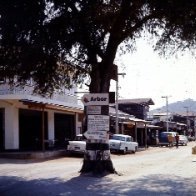Sun - Power Please.
-
Recently Browsing 0 members
- No registered users viewing this page.
-
Topics
-
-
Popular Contributors
-
-
Latest posts...
-
102
Health New COVID-19 Sub-Variant XFG Emerges in Thailand
4 jabs and no covid yet. Knock on wood! -
186
UK Macron Blames Brexit for Channel Migrant Surge as UK-French Deal Faces Turmoil
So people voted Brexit to align more with India? Got it. -
40
Immigration appointment 18th July 2025 for first retirement 1 year extension visa
I've just done some research and it appears that i should be ok, as the imo will have my details for the tdac ref. Or i should be able to retrieve them at the immigration office... -
328
Economy Trump Dishes Out 36% Tariffs in Shock Move Against Thailand
no it's not, and they don't. why are you here if all you want to do is spout unsubstantiated nonsense?- 1
-

-
186
UK Macron Blames Brexit for Channel Migrant Surge as UK-French Deal Faces Turmoil
He has great difficulty explaining anything....about anything. And so does his mate. -
51
USA CNN Analyst: Climate Fear Stagnant for Decades Despite Alarming Events
Sure thats why I saw road shoulders being burned. Its all lip service. When they realize that pollution is one of the reason that tourism is faltering maybe they will get it together. Look at the numbers https://en.wikipedia.org/wiki/World_Tourism_rankings.
-
-
Popular in The Pub




.thumb.jpeg.d2d19a66404642fd9ff62d6262fd153e.jpeg)








Recommended Posts
Create an account or sign in to comment
You need to be a member in order to leave a comment
Create an account
Sign up for a new account in our community. It's easy!
Register a new accountSign in
Already have an account? Sign in here.
Sign In Now